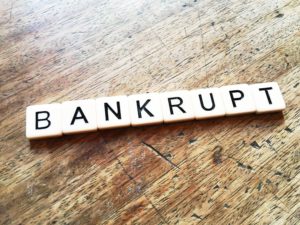Chapter 7 Bankruptcy Lawyer Hartford, CT

Depending on the kinds of debt you’re dealing with, your needs may be best served by pursuing debt consolidation or a debt management plan. However, if a significant fraction of your debt is unsecured (including overdue credit card balances, medical debt, etc.), filing for Chapter 7 bankruptcy may be best.
The Potential Benefits and Drawbacks of Filing for Chapter 7 Bankruptcy
Chapter 7 bankruptcy is not a debt relief solution that is available to all Americans. There are income limits imposed on this Chapter of the Bankruptcy Code. This bankruptcy is for low-income Americans who are unlikely to be in a position to repay their debts any time soon. Chapter 7 bankruptcy doesn’t require filers to repay a significant portion of their eligible debts before they can be discharged.
At the end of successful Chapter 7 bankruptcy filing process, all of the filer’s eligible debts are discharged outright. Additionally, this process can be wrapped up in as few as 90 days. This means that the filer will never be held responsible for that debt again. Consequently, creditors can never ask that the debts in question be repaid. As Chapter 7 bankruptcy significantly limits the rights of creditors to receive repayment, this debt relief solution remains available only to the lowest-income American filers.
A drawback associated with the Chapter 7 bankruptcy is that the trustee assigned to a filer’s case has the authority to sell any of that filer’s property that is considered exempt. Connecticut has generous exemptions available that protect most or all of an “average” filer’s property. However, if you own a significant amount of luxury property that isn’t exempt, you should consult with a bankruptcy lawyer.
Legal Assistance Is Available
You don’t have to know for sure whether filing for bankruptcy is the best option for your situation before connecting with The Law Offices of Ronald I. Chorches. We’d be happy to review your financial situation in a consultation setting. Then, we’ll advise you of all the options applicable to your situation. We’ll also never try to “sell” you on our services. You’ll never face any pressure to file for bankruptcy when you speak with our team. Our job is to explain your rights and options. Moreover, we provide you with our objective analysis of which option(s) may best suit your circumstances.

If you plan on filing Chapter 7 bankruptcy, you should consult a Chapter 7 bankruptcy lawyer Hartford, CT residents trust. Bankruptcy can be a complex process, so it’s helpful to have someone skilled on your side. A lawyer can guide you through the entire process and address your questions and concerns.
Signs You Should File Chapter 7 Bankruptcy
Filing for Chapter 7 bankruptcy is a big decision and shouldn’t be taken lightly. Here are a few signs declaring bankruptcy may be the right choice:
- Most of Your Debt is Dischargeable: Before you file for bankruptcy, it’s important to understand that not all debts are dischargeable. Student loans, child support and tax debt can’t be discharged in bankruptcy. If the majority of your debt is dischargeable, such as medical bills and credit card bills, bankruptcy may be best.
- You Can’t Handle Your Minimum Payments: If it’s difficult to pay the minimum on your bills, you may have to file bankruptcy to get relief.
- You Lost Your Job: If you recently lost your job, it will become even tougher to pay your credit cards and other bills. Your bills will continue to pile up and it will become more and more difficult to pay them off.
- You Receive Daily Phone Calls from Creditors: If you’ve missed several payments on your bills, your creditors will likely call every day demanding payment. This can make your situation even tougher. If you file for bankruptcy, your Chapter 7 bankruptcy lawyer in Hartford, CT can put a stop to these phone calls.
How Chapter 7 Bankruptcy May Affect Your Credit
One of the downsides to filing Chapter 7 bankruptcy is the negative effect it can have on your credit. After you file, you can expect your credit score to drop. As a result, you may have trouble getting approved for mortgages and other types of loans. The bankruptcy may remain on your credit report for up to 10 years.
Although a lower credit score may be disheartening, understand that you can improve your score over time. For example, you can apply for a secured credit card. A secured credit card will require you to submit a cash security deposit. If you make timely payments, you may see your credit rating go up. Schedule a consultation with The Law Offices of Ronald I. Chorches, today.
We also service clients from Bridgeport, Waterbury, and New Haven.
